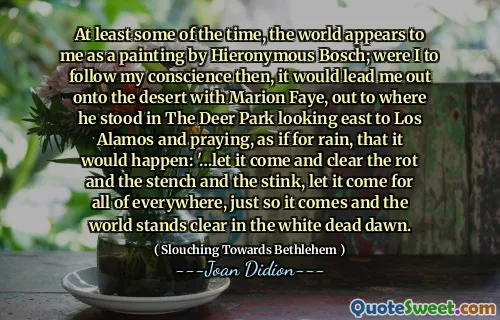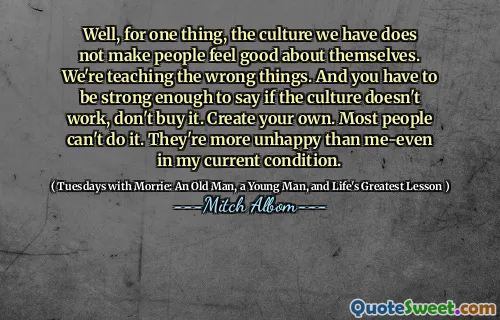
很容易看到事物的开端,而且很难看到末端。我现在可以记住,纽约开始为我开始时,脖子上的紧张使我的脖子后面的神经紧缩了,但是我无法在纽约结束的那一刻,永远无法削减歧义,第二个开始,第二个开始并破裂了女主角不再像她那样乐观的页面上的确切位置。
(It is easy to see the beginnings of things, and harder to see the ends. I can remember now, with a clarity that makes the nerves in the back of my neck constrict, when New York began for me, but I cannot lay my finger upon the moment it ended, can never cut through the ambiguities and second starts and broken resolves to the exact place on the page where the heroine is no longer as optimistic as she once was.)
这句话反映了起点和结局之间的对比,尤其是在个人经验中。演讲者回忆起他们到达纽约的生动记忆,强调了它带来的兴奋和潜力。但是,挑战在于指出何时最初的热情消失,揭示了变化的复杂性和确定确定确定结局时刻的困难。这种不确定性呼应了关于生活过渡的更广泛的主题,在这里,清晰度通常伴随着新的起点,而结论仍然晦涩难懂。
确定变化的确切时刻的斗争强调了如何充满歧义的生活,这使得乐观主义变成更柔和的事物时很难认识到。这引起了作者的个人旅程的共鸣,并反映了与时间的流逝和感情演变的普遍经历。迪迪翁(Didion)的反思提醒人们,尽管起步可能很容易庆祝,但结局常常被混乱,让我们质疑曾经珍惜的东西。











